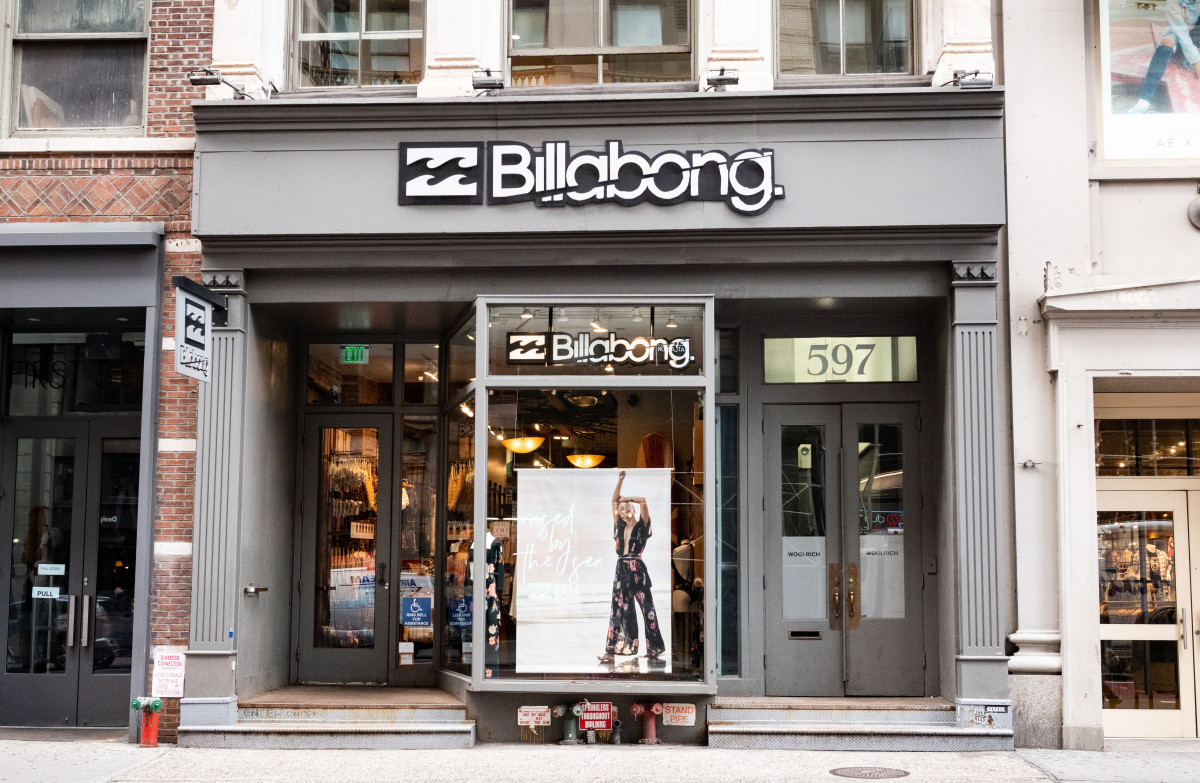
Sporting goods and apparel retailers have faced an array of economic issues since the industry faced store shutdowns in 2020 during the Covid-19 pandemic.
Once retailers began reopening their doors after the initial Covid-19 business shutdowns, those focusing on outdoor products experienced a rise in business from heightened consumer interest in outdoor activities, as people sought to avoid close contact indoors that could risk Covid infection.
⚡Breaking: 12 things to know about Trump's new tariffs ⚡
Retailers also faced supply chain issues, rising inflation, and higher interest rates that raised costs and impacted their revenue.
Related: Bankrupt restaurant chain sells or closes its remaining locations
Sporting goods company Surf 9, which claims to be the third-largest paddle board retailer worldwide, filed for Chapter 11 bankruptcy on Jan. 8 seeking to reorganize its business as it faced water sports equipment maker Body Glove's plans to terminate its license to distribute paddle boards and footwear over alleged unpaid royalties.
The company had a licensing agreement with Body Glove for about 20 years, and also had licenses with Nautica, Eddie Bauer, Spyder, and Airwalk.
Another sporting goods and apparel retailer Mountain Sports, which operated about 50 sporting goods and apparel stores in seven Northeast states under the Eastern Mountain Sports and Bob's Stores brands, on June 18, 2024, filed for Chapter 11 bankruptcy in the U.S. Bankruptcy Court for the District of Delaware to restructure its debt and reorganize its business after defaulting on a loan agreement with PNC Bank.
Mountain Warehouse, an outdoor gear and apparel company based in the United Kingdom on Sept. 2, 2024, purchased the bankrupt chain's key assets, including the long-established brand name, website, and seven profitable stores, for $5 million, along with another $5 million for other assets not mentioned in the statement.

Liberated Brands files for Chapter 11 bankruptcy
Another popular outdoor apparel retailer Liberated Brands, which licensed and operated major retail brands including Volcom, Billabong, Quicksilver, and Roxy, filed for Chapter 11 bankruptcy protection after licensing rights for three of its wholesale operations were terminated in December as a result of a default under their agreements.
Related: Troubled popular retailer files for Chapter 11 bankruptcy
Liberated Brands and eight affiliates filed their petition on Feb. 2 in the U.S. Bankruptcy Court for the District of Delaware listing $100 million to $500 million in assets and liabilities.
More bankruptcy:
- Popular bankrupt restaurant chain unloads successful locations
- Formerly bankrupt burger chain rescued by fast-food rival
- Former bankrupt craft beer chain adds locations after closings
The debtor owes about $98 million in total funded debt obligations, about $78 million in unsecured vendor and trade debt, and about $50 million in unpaid royalty payments under its licensing agreements.
The debtor's largest unsecured creditors include Ningbo Jehson Textiles, owed over $3.19 million; Unis, owed over $2 million; and Dongyang Yilong Garments Co. Ltd., owed $1.79 million.
The debtor seeks a $35 million new money debtor-in-possession asset-based financing facility from JPMorgan Chase Bank NA as it pursues its bankruptcy case to implement liquidation and winddown of its North American operations and the potential sales of its Australian, European, Japanese, and Canadian operations.
Former Volcom CEO founded Liberated Brands
The Costa Mesa, Calif., retailer's CEO Todd Hymel founded the company in 2019 after serving as lifestyle clothing retailer Volcom's CEO since December 2015. Hymel created Liberated Brands and obtained the license rights and operating authority for the Volcom brand, which Authentic Brands acquired in April 2019.
The company in October 2021 followed the Volcom deal with a purchase of Authentic Brands' licenses for the Spyder active lifestyle brand.
Liberated Brands had a significant increase in revenue coming out of the Covid-19 pandemic with a sharp rise in demand due to increased outdoor leisure time and government stimulus support provided to customers. Its revenue rose 20% year-over-year from $350 million in 2021 to $422 million in 2022.
Increased demand led the company in 2023 to acquire licenses and retail assets of several more outdoor apparel brands from Authentic including Quiksilver, Billabong, Roxy, RVCA, Honolua, and Boardriders. The company operated 124 retail locations when it filed its petition.
Macroeconomic issues, including a spike in interest rates, rising inflation, supply chain delays, a decline in customer demand, shifting customer behavior, and substantial fixed costs negatively affected revenue and the company's cost structure.
Facing financial distress and operational challenges, the company in November 2024 hired financial and restructuring advisers and divested its unsuccessful Spyder business.
More bad news hit the company in December 2024, as its North American license rights for Volcom, RVCA, and Billabong were terminated as a result of a default under the license agreements. In late 2024 and early 2025, vendors began holding back in-transit inventory, which led to a reduction in its borrowing base on a prepetition asset-based lending facility
The debtor became over-advanced on the ABL facility and its ability to continue as a going concern deteriorated. The company turned to its advisers to negotiate DIP financing and to file for Chapter 11 protection to sell its assets.
Related: Veteran fund manager delivers alarming S&P 500 forecast







